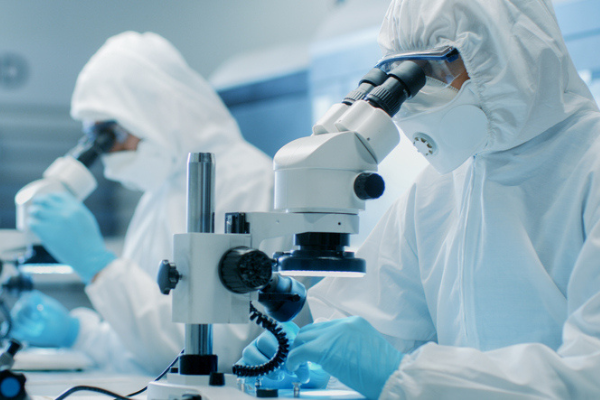
Key Takeaways:
- Emma Parmee on when she realized she wanted to be VP of Merck
- What Parmee believes pharma can do to make the workplace more rewarding for women and minorities
- Parmee reflects on COVID-19 and predicts the possibility of similar pandemics in the next ten years
For those of us not in the business of discovering and inventing medicines to transform patients’ lives, can you give us a better sense of just how difficult this can be?
Drug Discovery is often likened to looking for a needle in a haystack. I personally add the caveat that you are not sure which haystack the needle is in, or if there is even a needle at all! Nevertheless, the benefit that a new drug can have on human health is so important that I am sure I speak for everyone in the industry when I say that we will keep persevering and learning from our efforts, even though much of what we do will not come to fruition.
The current COVID-19 pandemic illustrates some of the challenges of drug discovery. There are multiple approaches that can be taken to find a therapeutic to combat the virus. To demonstrate, let us push vaccines to the side for a moment and just consider treatments: a potential drug could utilize either viral or host targets to prevent replication of SARS-CoV-2 or inhibit entry of the virus into host cells. For each of these approaches, there are multiple different proteins that could be targeted, and we need to understand the biology of all these potential approaches to identify the best therapeutic to stop the infection.
Additionally, in some cases the body has redundant biological mechanisms, and while a single drug regimen might work well in the laboratory, a combination of drugs may be necessary to inhibit multiple proteins in order to have a truly efficacious treatment in a clinical setting.
Selecting the right target is extremely important, but equally important is making the right molecule to interact with that target. To do this, we first need to understand where the drug will be used and for how long. For example, if the drug will be used for severely ill patients in the hospital, then intravenous administration may be preferable.
On the other hand, if the drug will be used prophylactically or on patients who are not in the hospital environment, then an oral drug or a long-acting injection is more convenient. Because, as of today, we have no broadly effective treatments for COVID-19, we are interested in drugs for all stages of the disease. We are, therefore, evaluating multiple modalities, including small molecules, peptides, monoclonal antibodies, nanoparticles, oligonucleotides and cell therapies.
All these approaches have their own advantages and disadvantages, but they all require significant optimization and testing before a drug molecule can be evaluated in the clinic. For small molecules, which is where most of my effort is focused, the path to identifying a drug with all the requisite properties can routinely take three or more years. It starts with screening to find a molecule that interacts – even weakly – with the target. That molecule is then optimized by designing, making, and testing many thousands of analogs in order to create a compound that is efficacious, safe, and has all the pharmaceutical properties needed for a drug. After this, the compound must still go through more advanced safety studies and many years of clinical testing before it is ready for approval.
While progressing through all these steps seems like a daunting task, we are always developing new technologies that will accelerate the drug discovery process. For example, we have new powerful genetic tools, such as CRISPR, to aid in our understanding of human biology, which allows us to speed up and improve the identification of targets. Machine learning has also transformed the field, impacting everything from functional genomics to optimizing lead compounds.
Innovations like these, coupled with the tireless efforts of drug discovery scientists, mean that we can constantly push the boundaries of our field and pursue projects targeting harder and more complex biological systems than ever before. We hope that overcoming these challenges will allow us to continue to improve and extend the lives of people throughout the world.
You have spent 28 years at Merck. At what point in your career did you realize that you would be interested in a VP-level job? What led you to that realization?
I am afraid I must admit that I have never really had a career plan! At every step of my career, my goal has always been to simply do the best I can in the role I have been given. Each time I have found that, after a year or two in a given role, I was excited to do more, and wanted the opportunity to contribute further to the organization. So, for me, it has never been about the title, rather it has been about the ability to have an impact, to support the people with whom I work, and to contribute to the mission of the company.
It is possible to do these things in many ways at many different levels of the organization. But, as I moved up the management ladder, I did realize that working hard every day to inspire, enable, and develop a group of people around a common vision was something I found very fulfilling. As someone who has spent my career trying to serve Merck in this way and who has spent my life loving chemistry, leading the Discovery Chemistry organization at Merck was a role that I was very honored and privileged to take on when the opportunity arose.
Are you seeing improvement in the ability of women to obtain positions in upper levels of management? And if so, what’s responsible? What else can be done to accelerate progress in this area?
There are certainly many more women at senior levels of organizations now than there were when I started my career. I have noticed a number of factors responsible for these changes at Merck: conscious efforts to ensure diverse candidate slates and interview panels for all positions (especially those at a higher level), increased awareness of implicit bias in our organization, the consideration of diversity with every promotion and assignment, and endeavors to ensure employees of any gender can take off for the care of a new child without negatively impacting their career.
That being said, there is still a long way to go before we have a rich and sustainable “pipeline” of female leaders, and before a gender-balanced organization is the norm at all levels. One of the ways in which I strive for these goals is to make sure we recognize the necessity for and success of many different leadership styles; the more inclusive, collaborative, and supportive approach often used by female leaders is highly effective and, in some cases, preferable in today’s work environment.
More generally, what can pharma do to make the workplace more welcoming and rewarding for women and minorities?
To follow on from my point above, having a diverse organization at all levels of a company not only makes the work environment more welcoming to all but has been shown to lead to more successful businesses as well. Employees, especially those new to the company, need to see that they can be successful in their careers, no matter their gender, race, or sexual orientation. This knowledge comes in part from an inclusive environment. However, it is equally important that our employees find role models to whom they can relate at more senior levels of the company. This kind of representation gives those starting their careers the confidence that they too can succeed and advance in the organization.
I would be remiss if I answered this question without addressing recent events and the climate around racism and social injustice in our country today. Not only do we need to have diverse representation at all levels of our company, but we must ensure that we speak out against discrimination, especially the implicit biases and judgements of which we can all be guilty. I was so inspired by the response of our CEO, Ken Frazier, to recent events, which he shared so passionately in an interview with CNBC. The inclusive culture that Ken has set for our company is reflected at all levels of the organization and I am hoping that we can all learn from his recent actions and speak out in a bolder way at work whenever we see bias or discrimination. If we work both toward diverse representation at all levels, and against stereotypes, discrimination, and judgement, we can make the workplace a truly welcoming and inclusive environment for all.
What’s the one personality trait that has been most instrumental in your career success?
I believe that an innate determination to always do the best job that I can in all aspects of my work has been a significant contributor to career success. The reason this has been singularly important is that it has impacted everything I do, whether it’s discovering a molecule to be tested as a potential new therapeutic, drawing up strategic goals for the Chemistry organization, or trying to get folks safely back to work in the lab after the COVID-19 shut down.
I must acknowledge that this same determination does occasionally lead to me spending more time than I should preparing for that important presentation or causes me to reword emails until they feel just right! Despite this, I do believe my determination has helped me be successful throughout my career and it is always in my control to do the absolute best job that I can do. I also feel I owe that level of commitment to Merck, my colleagues, and myself.
How have your parents influenced your leadership style?
From a very young age my mother showed me the importance of putting other people first, of always thinking about others before myself. Although at the time she did not realize that this lesson would have such a significant influence on me, it has defined me as a leader in many ways.
With people development, I try to ensure I focus on what is in the best interest of my reports. I hope that they know that I will work hard to help them grow and flourish in their careers. Additionally, empathy is a crucial trait for effective leadership, especially when we are going through difficult times, as we have been the last few months during the COVID-19 pandemic. Understanding that folks may have family-care considerations or health concerns and being as responsive as possible to each person’s individual situation has been uppermost in my mind as I have supported my organization through the pandemic.
Last, what my mother taught me has profoundly influenced my decision-making over the years. Sometimes we must make hard decisions as leaders, and it is important to take off the “what is best for me” hat and try to wear the “what is best for Merck” hat. While this is not easy for any of us, when I have those decisions to make, I try to actively acknowledge where my motivation is coming from to ensure I make the decision that is best for Merck and my colleagues.
What does the nature of COVID-19 tell you, if anything, about the prospects of such pandemics in the next ten years?
The current pandemic caught us all by surprise with its severity, both in terms of how widespread it is and the number of fatalities it has caused. I know when I first started hearing of SARS-CoV-2 at the beginning of the year, I had assumed at worst it would be like the first SARS-CoV outbreak in 2003, or MERS-CoV in 2012. While these did have a significant impact, they were generally contained: the numbers of cases were in the low thousands, and fatalities in the hundreds worldwide.
I am also reminded of the emergence and impact of HIV in the early 1980s, and more recently Ebola virus disease. Many years of research from pharmaceutical companies, nonprofit organizations, and academic scientists has meant that, while we still do not have a cure or a vaccine for HIV, many people can now live a close to normal life with their viral load well controlled. Similarly, an Ebola virus vaccine was recently approved, a development that will hopefully help us contain future outbreaks of this disease as well.
What the current pandemic reminds us is that new infectious diseases will likely continue to emerge. But what HIV treatments and the Ebola vaccine teach us is that, while the ability of viruses to mutate and render initial treatments ineffective must not be underestimated, with years of research and dedication we can develop effective therapies to combat the viruses.
Thus, while many companies have reduced their emphasis on infectious disease research, I think it is imperative that we continue to invest in this area. And while right now, the pharmaceutical industry has a pivotal role to play in quickly finding treatments and a vaccine for the current SARS-CoV-2 outbreak, we must also think proactively and prepare for future, as yet unidentified coronavirus outbreaks, and continue to invest in infectious disease research in general. History tells us that pandemics like the current coronavirus will happen again, but it also shows us that with dedicated research, we can and will find new medicines to combat them.
Among your scientists at Merck, what skills do you most highly value?
Drug Discovery is a team sport, and it is also incredibly difficult! We must all work together in a seamless way to have any chance of delivering the life-saving drugs that the world needs. For this reason, collaboration and the ability to work well with others is one of the most important non-technical skills I value in our scientists. Collaboration and teamwork may seem simple in the abstract, but in reality, they often require sacrifices.
Our scientists are dedicated to their research; however, being a good collaborator necessitates not just thinking about your own work, but rather about the team, the broader scientific portfolio, and the company as a whole. It may mean allowing others to work on a new scientific breakthrough you have made so we can advance the finding as quickly as possible. It may involve stopping your area of research if it is not the most important priority, in order to support another lead series or project. It may mean working closely with and learning from colleagues in different disciplines to ensure we deliver a molecule with all the right properties to be a drug.
We value collaborative behaviors such as these from everyone in the organization. Of course, it is not always easy to shift your focus away from a project or idea, especially after a lot of time or energy has been dedicated to it. But, willingness to consider the big picture is always rewarded, both explicitly in year-end assessments and advancement opportunities, and more generally as we recognize the whole team when we celebrate successes together.
What is one area where universities are doing really well in preparing chemists for employment in the pharma industry? And what’s one area where universities can improve?
Following a tradition of many decades, our academic colleagues continue do a great job at giving their students a strong background in organic chemistry. The scientific and problem-solving skills they attain in synthesis, methodology, or a mixture of the two are crucially important for the work they will do in the pharmaceutical industry. On a personal note, I am excited for my son, Paul, to gain these skills, as he starts his journey as a graduate student in organic chemistry just a couple of months from now.
However, it is equally important these days that new employees have a diversity of training, especially in the area of data sciences. Expertise in data sciences is highly valued given the growing emphasis on informatics and machine learning in almost all aspects of the work that we do in drug discovery. Thus, universities should strive to integrate a good foundation in data sciences into their chemistry programs, so that, when their students begin their journeys in the pharmaceutical industry, they are able to adapt to the rapidly changing, IT-intensive environment in which we work.
How would you characterize your reaction to the frequent criticism – in the United States at least – leveled at the pharma industry by politicians and the media?
I feel disappointed that people don’t recognize the difficult work conducted by research-driven biopharmaceutical companies such as Merck, and how passionate and committed our employees are to improving the lives of people throughout the world. Our company motto is “Inventing for Life”: I often think that this means not only that we are inventing new medicines and vaccines to save lives, but also that our scientists dedicate their own lives, working hard every day, to this noble cause.
What technology trends are you following most closely with an eye toward how they may impact the work of your scientists?
Artificial Intelligence is receiving a lot of attention right now, and while the potential impact has been subject to a significant amount of hype, I do believe that Machine Learning (a subset of AI) will have a transformative and durable impact on drug discovery. In chemistry alone, virtual screening techniques to supply novel starting points for programs are much more advanced now than they were even a few years ago. We are developing more and more accurate predictive models to aid us with molecule design both in the small molecule and therapeutic protein space. We are even developing machine learning tools to help support synthetic route selection and planning. Machine Learning is not new, but what has changed over the last few years is our ability to generate large quantities of data through more advanced automation and high throughput experimentation. These abilities, coupled with the increased speed and computational power we now have, mean we can build more accurate and complex models. The use of these models is already changing the way we run our medicinal chemistry programs and will, I am sure, continue to meaningfully impact all aspects of drug discovery.
The other area that I just want to briefly mention is that of novel modalities, which are imperative to help us access unexplored biology and drug even the most difficult targets. We now have many more options to consider when we want to modulate a target. We no longer just use small molecules and monoclonal antibodies, but we can also consider peptides, bioconjugates, oligonucleotides, therapeutic proteins, or gene or cell therapy.
We also think about different methods of modulating the target within a modality; for example, protein degradation or RNA-targeting small molecules. This choice of modality is crucial, as it will determine the trajectory of the program. And even more important, our chemistry organization is developing the skills to work seamlessly across modalities, often in collaboration with our colleagues in biologics, so we can discover new drugs with the most appropriate molecule - whatever that might look like.
While growing up in the U.K., you attended all-girl schools through your high school years. What was that experience like for you? Do they still have a place in today’s world?
I consider myself very fortunate to have had the opportunity to attend The Maynard School for my secondary school education. Although as a teenager I was not always so keen on attending an all-girls school, the academic foundation it gave me was well worth it. The Maynard School focused on excellence in a girl’s education – especially in math and sciences – at a time when that was not so common. Thus, I had many opportunities that I might not have had otherwise: taking multiple science classes throughout my schooling, focusing only on science and math my last two years of high school, and learning a considerable amount of organic chemistry. This latter experience led me to fall in love with the subject and set me off on my higher education trajectory through university and ultimately to my career at Merck.
I have two children who grew up in the U.S. Paul attended the local public high school and had a wonderful experience; he did well academically and had a close group of friends. My daughter, Ann, felt that she would like to be in a smaller and more socially intimate environment and therefore decided to attend a small, all-girls high school. This was the right choice for her: she flourished in the all-girls setting and also had a great, though very different, high school experience in an environment that suited her personality.
My family’s experience suggests that education is not “one size fits all” and that it is important that we provide our children with options to help them find their best path. This is especially true for girls, as their education is crucial for giving them tools to overcome the challenges they will face and enabling them to become strong leaders who will shape our future.
I would be remiss if I didn’t take this opportunity to thank my daughter, Ann. As a result of her more formal education, she is by far the best writer in the family and I must acknowledge her thoughtful proof-reading of my answers to these questions and the fun we had discussing some of the topics I was addressing!
What’s the one aspect of U.K. life that you wish you could have with you, here in the U.S.?
After almost thirty years in the U.S., I have acclimatized pretty well to life in this country and its many advantages. One of the things I still miss about the UK, however, is the beautiful countryside: the gorgeous coastline with rugged cliffs and little coves where I grew up in Devon, or scenic walks in the Cotswold’s near Oxford (often ending up at a pub by a river for refreshments), or a hike in the Peak District over windswept hills from my years in Manchester. Britain is so beautiful, and even more importantly, the countryside is readily accessible in a way that I do not always see in the U.S. I must admit to a guilty pleasure of watching British TV dramas, like Poldark, set in Cornwall, just to enjoy the gorgeous English scenery!

Emma Parmee is currently the Head of Discovery Chemistry at Merck Research Labs. The organization is responsible for the delivery of small molecule and peptide drug candidates across all therapeutic areas.
Emma moved to Merck’s West Point facility in 2010, assuming the role of Discovery Chemistry Site Lead where she was responsible for chemistry efforts in Neuroscience, HIV, and Bone. During this time a small molecule CGRP antagonist was delivered by the group. From 2013 to 2018 Emma first led Merck’s Exploratory Chemistry Group and then the Chemistry Capabilities and Screening Group.
Prior to her move to West Point, Emma was located in Rahway where she worked for nearly eighteen years in Cardiometabolic areas and contributed to several projects which demonstrated clinical POC. She was also privileged to work on the DPP-4 inhibitor project for which she was awarded Thomas Alva Edison Patent Award from the R&D Council of NJ and the SCI Gordon E. Moore Medal for Innovation. She is also the recipient of the 2018 ACS Medicinal Chemistry Division Award and was inducted into the ACS Division of Medicinal Chemistry Hall of Fame in 2018. Her work has led to more than forty issued US patents and over fifty publications in peer-reviewed journals.
Emma came to Merck in 1992 after completing a NATO postdoctoral fellowship at MIT under Professor Satoru Masamune. She obtained her PhD in 1990 at the University of Oxford, studying the total synthesis of milbemycin natural products.
This article has been edited for length and clarity. The opinions expressed in this article are the author's own and do not necessarily reflect the view of their employer or the American Chemical Society.
Copyright 2022 American Chemical Society (All Rights Reserved)








